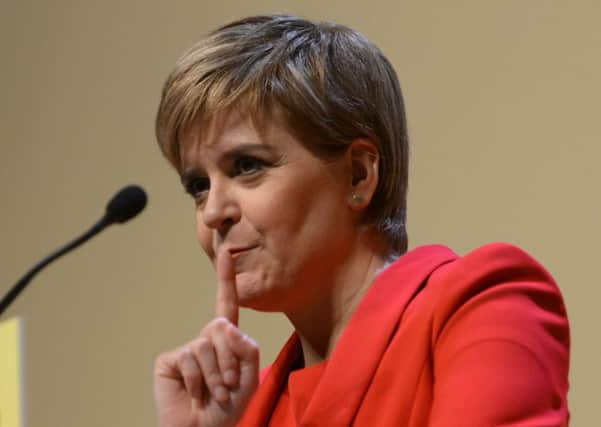Leader comment: Sturgeon seeks way out of a tight spot


“Now is not the time,” said Theresa May. And now it seems that the SNP has had to agree, although not explicitly. Yesterday’s manifesto launch saw the Nationalists shift position, with a vote for independence to be held “at the end of the Brexit process”. This is not a million miles away from Mrs May saying that a second independence referendum should not take place before the people of Scotland know the full details of what Brexit will involve.
There will, of course, be debate about just what represents the “end” of the Brexit process, because after a deal is struck, the practicalities have to be assessed, legalities examined, and processes put in place. None of this is going to be straightforward, and could take years.
Advertisement
Hide AdAdvertisement
Hide AdBut as reluctant as the SNP might have been to back down, it was a necessary tactic. Several factors have been in the party’s favour – a general election landslide, victory in the Holyrood elections, and Brexit against the will of the majority in Scotland – yet this has not been enough to increase support for independence. Worryingly for the Nationalists, there was growing evidence of independence supporters from 2014 stating that they felt that it was too soon to try again.
Ms Sturgeon may have misjudged the mood, but paradoxically, there is also the possibility that pushing back a referendum will, in the long run, offer her party the best chance of achieving its ultimate objective.
If Brexit itself has not so far been the material change in circumstance it was argued to be, there remains the possibility that it will be considered just that when its consequences are experienced. If Brexit proves to be damaging for the UK – and Scotland – and its effects really start to bite, the SNP could find that in three or four years, support for independence is on the rise again.
But for the moment, “now is not the time” has won the argument in the short term.